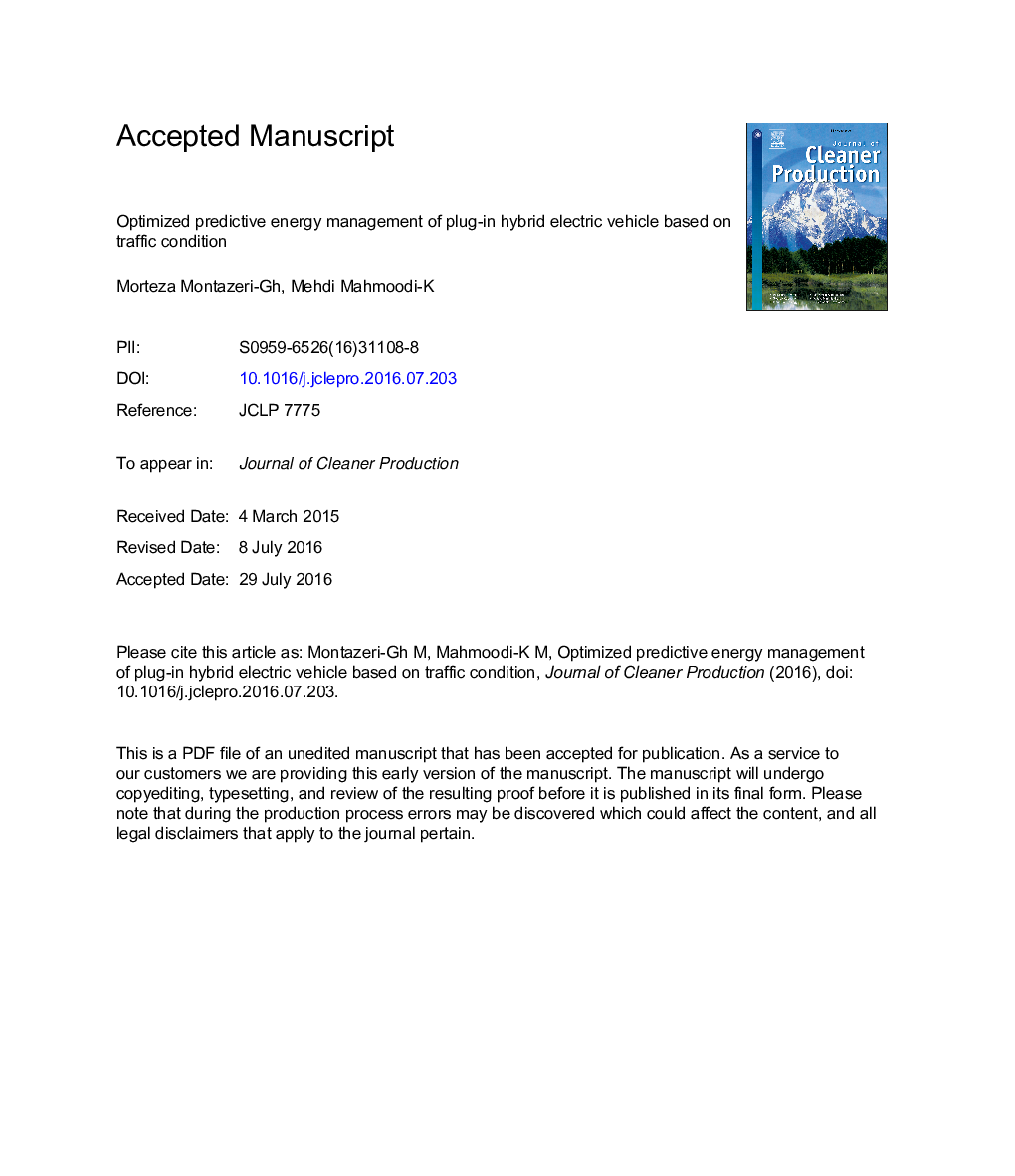| Article ID | Journal | Published Year | Pages | File Type |
|---|---|---|---|---|
| 8100704 | Journal of Cleaner Production | 2016 | 29 Pages |
Abstract
Reduction of fuel consumption (FC) and emissions are an indispensable part of automotive industry in recent years, which caused Plug-in Hybrid electric Vehicle (PHEV) be taken into consideration. The main objective of this paper is developing a predictive optimized control strategy based on traffic condition prediction for minimizing FC and emissions. For this purpose, initially traffic condition is predicted by utilizing driving cycle classification based on its specifications. Then, control strategy based on fuzzy logic controller (FLC) is developed for various driving conditions which their membership function (MF) parameters and rules are tuned by employing genetic algorithm (GA). In the next step, by recognition and prediction of upcoming traffic condition, control strategy is switched between optimized FLCs to enhance the optimal power split between sources and manage the internal combustion engine (ICE) to work in the vicinity of its optimal condition. Finally, the effects of control strategy, mass and aerodynamic parameters on PHEV performance and energy usage of components are investigated. Simulation results indicate that proposed approach in real world driving condition reduces emissions and FC significantly.
Keywords
Related Topics
Physical Sciences and Engineering
Energy
Renewable Energy, Sustainability and the Environment
Authors
Morteza Montazeri-Gh, Mehdi Mahmoodi-K,
